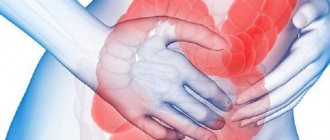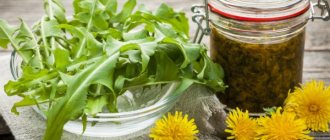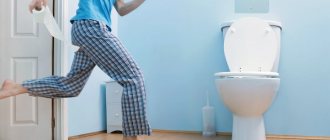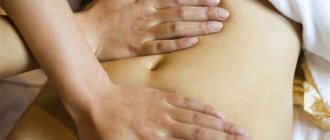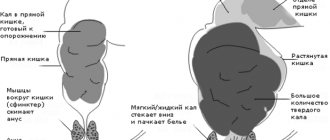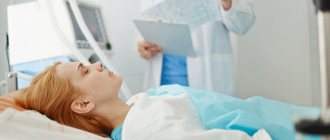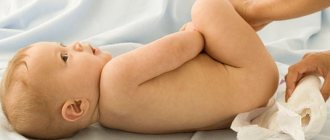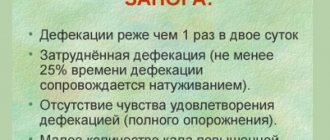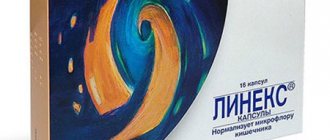Difficulties with defecation and increased gas formation can occur unexpectedly in a healthy person. Often the cause is a festive dinner, poor lifestyle, stress, and lack of exercise. What to do in a situation where you are worried about constipation together with flatulence, the main causes of the unpleasant condition, and methods of elimination are discussed in the article.
A person suffering from constipation for a long time has information about the causes of its occurrence. As a rule, the situation is associated with lifestyle, disturbances in the nutritional system, regular lack of sleep, and manifests itself in chronic diseases of the digestive system. But if difficulties suddenly arise during the act of defecation, you need to review a number of the last days of your life and try to understand what led to the malaise. If the stomach is swollen, it hurts, and defecation is impossible, there are several options, they depend on the symptoms and sensations of the patient.
What diseases may the condition indicate?
| Disease, condition | Symptoms |
| Hiatal hernia | Signs of the disease appear more often in patients over 40 years of age; by this age, the muscle framework is impaired. The patient is worried about a feeling of bitterness in the throat, discomfort, bloating, constipation. After eating, the patient's condition worsens. |
| Enzyme deficiency | The condition occurs when the gastrointestinal tract has difficulty digesting food. Stagnation of the stomach contents occurs, accompanied by symptoms: heaviness in the stomach, constant cramping pain in the abdomen, bad breath. |
| Dysbacteriosis | It is characterized by a decrease in the number of microorganisms in the intestines, resulting in rotting and poor absorption of nutrients. This condition causes nausea, belching, constipation, and pain in the lower abdomen. |
| Pancreatitis | Due to disruption of the pancreas, gases accumulate in the abdominal cavity. Pancreatitis is characterized by rumbling and upset stools. The patient swells and smells like rotten eggs. |
| Inflammation of the duodenum | Nausea, pain in the subcostal space, flatulence. The manifestation of ailments is more common in the evening. |
| Irritable bowel syndrome | Stool upset, a feeling of incomplete bowel movement, a feeling of fullness of the bladder, the patient belches. Symptoms worsen in the morning. |
| Increased gas production during pregnancy | Characteristic at different stages of pregnancy. Symptoms: belching, heaviness in the abdomen. |
| Worm infestation | Weakness, nausea, lack of appetite, pain at the top near the navel, itching in the anus, rash. |
| Colitis | Painful sensations - stabbing on the left side, the condition worsens after a long walk, shaking in public transport. Heaviness, flatulence, feeling of incomplete bowel movement. |
Possible hazards and consequences
When constipation occurs, stool hardens and collects in the colon.
They prevent gases from leaving the intestines and cause bloating. Prolonged constipation and flatulence can lead to serious diseases: hemorrhoidal bleeding, anal fissures and rectal diverticulosis. Constipation is a strong formation of gas in the intestines and is dangerous due to its consequences:
- Formation of inflamed nodes in the sigmoid and rectum.
- When feces are retained in the blind section of the intestine, there is a risk of developing reflux enteritis, then feces will be thrown into the small intestine.
- Development of hepatitis and other pathologies of the biliary tract.
- The occurrence of serious diseases such as hemorrhoids and paraproctitis.
Flatulence and constipation can cause expansion and lengthening of the rectum, and this worsens the symptoms of the disease and its treatment. The most dangerous complication is the development of oncology, which can be determined by the presence of blood in the stool, sudden weight loss and frequent poor health.
Causes of the disease
If there are difficulties in the gastrointestinal tract, the cause of constipation and flatulence is the disease itself. If the symptoms of an illness begin to bother a healthy person, the reasons are seen in the consumption of certain foods that increase gas formation or in the consumption of incompatible components in food that interfere with each other.
The following products cause severe bloating and gases:
- Bakery products, pastries.
- Carbonated drinks, kvass, beer with a high content of yeast and fungi.
- Eating large amounts of heavy, fatty foods.
- Feasts with salads and incompatible products.
- Snacking on the run, eating quickly, with poor chewing.
If unexpected constipation and flatulence occur due to errors in nutrition, then a fasting day on kefir, diet adjustments, and physical activity will quickly eliminate the malaise. If the situation is not resolved, difficult bowel movements become frequent, accompanied by gas formation, abdominal pain, and the prognosis looks disappointing due to a malfunction of the digestive organs.
Consultation with specialists and passing the necessary tests is required. After examination and laboratory tests, the doctor makes a diagnosis and prescribes treatment.
Review of effective symptom management remedies
| Name of medicine | Pharmacological group | Peculiarities |
| Mezim (Pancreatin) | Enzyme-containing drugs | Contains a mixture of digestive enzymes isolated from the pancreas of pigs. The process of breaking down proteins, fats, and carbohydrates improves. The drugs are recommended for patients after surgical interventions, for chronic stomach diseases, and dietary errors. |
| Linex, Bifiform (for children), Licidofil | Probiotics | They normalize intestinal microflora and provide recovery from dysbacteriosis. |
| Lactulose syrup, Medulak, Forzhekt, Duphalac, Lactofiltrum | Laxatives | Feces soften and pass out faster, intestinal motility improves, and digestion improves. Approved for use by adults and children, lactulose syrup is the only approved drug against constipation in children under one year of age. |
| Trimedat, Neobutin | Antispasmodics | Tablets for the intestines against bloating regulate intestinal motility and restore the muscles of the gastrointestinal tract. |
| Espumisan (suspension), Plantex | Carminatives | Preparations based on simethicone prevent the formation of gas bubbles. |
| Activated carbon, Polysorb, Enterosgel | Enterosorbents | Bind toxic substances by adsorption. |
Treatment of constipation:
- For constipation with flatulence, bloating, rumbling, first use is to cleanse the stomach by taking laxative medications and administering enemas.
- Restoration of intestinal motility with antispasmodic medications.
- Taking prophylactic medications to prevent relapses.
Treatment of flatulence and bloating:
- Carminative drugs that prevent the formation of gases and enterosorbents are prescribed.
- Taking enzyme-containing products to speed up the digestion of food.
- Taking probiotics to restore the gastrointestinal microflora.
Treatment is carried out subject to prior consultation with a doctor. Uncontrolled use of tablets leads to addiction and “lazy” stomach syndrome. An overdose of laxatives provokes diarrhea and diarrhea. Prescribe medications with caution for hemorrhoids and rectal fissures.
What to do for constipation and symptoms of flatulence
Diagnosis and treatment of the causes of bloating and constipation should only be carried out under the supervision of a doctor who will conduct appropriate studies to exclude the presence of such diseases:
- Liver pathology.
- Worm infestation.
- Neuroses.
- Haemorrhoids.
- Dysbacteriosis.
Therapy for constipation and flatulence involves:
- Increased physical activity.
- Revision of nutrition.
- Use of laxatives and other drugs.
- Using alternative medicine recipes.
- Special exercises.
Features of treatment
Constipation, accompanied by excessive flatulence, like any other intestinal disease, should be treated based on the cause that contributed to its development.
To do this, the above-mentioned comprehensive therapeutic approach is used, before which an appropriate diagnosis is necessarily performed, which helps to accurately determine the root cause of the pathology.
If the examination results confirm the absence of an infectious origin of the pathology, then medications are prescribed, for example:
- Mezim.
- Espumisan.
- Probiotics.
In this case, the use of medications should only be carried out under the supervision of a physician. Medicines with a laxative effect are prescribed for chronic or acute constipation. However, we should not forget that saline laxatives are contraindicated for acute constipation; it is better to give preference to medications with herbal components.
https://www.youtube.com/watch?v=8VeGIIwhQ78
After eliminating the primary disease, therapy is continued at home:
- Using special medications for constipation and bloating.
- Maintaining proper nutrition, which involves a careful combination of foods.
- Reduce the use of coffee, cocoa and chocolate to a minimum.
- Preference is given to crumbly porridges made from buckwheat, pearl barley and millet.
- Avoid white bread, thick cereals, and pasta.
- Priority in the diet should be foods high in coarse fiber (apples, oatmeal, grain bread).
- Do not forget about fresh vegetables and fruits, for example, oranges help eliminate constipation, but they are contraindicated for stomach ulcers and a number of gastrointestinal diseases.
- Exclusion from the menu of animal fat, as well as marinades and pickles.
- Using traditional medicine recipes, such as herbal teas made from medicinal chamomile or a fennel drink.
In addition, other folk recipes have proven themselves to be excellent, for example:
- Take 1 tbsp. l. ground dill seeds and pour 1.5 tbsp. boiling water, leave for 2-3 hours, then strain and drink 0.5 cups 3 times a day a few hours before eating.
- Take 2 tbsp. l. mint leaves (field mint) and steam 400 ml of boiling water, let it brew for 20 minutes and drink 100-200 ml 2-3 times a day 20 minutes before meals.
- Pour wormwood (1 tbsp) with 1 cup of boiling water, leave, then add 1 tsp. honey and take ¼ cup 3 times a day half an hour before meals.
- Every morning, 1 hour before breakfast, drink 1 glass of freshly prepared potato juice, then immediately go to bed for 30 minutes. The duration of the course is 10 days, then a ten-day break, and again 10 days of treatment.
- Place 4-7 drops of anise or dill oil on a piece of sugar and eat it immediately.
Espumisan
Also, every morning it is necessary to do therapeutic exercises and exercises that help maintain the tone of the mucous walls of the gastrointestinal tract and regulate their functioning.
Bloating and constipation can warn of the following diseases:
- Problems of the digestive system - ulcers, chronic dysbiosis, polyps, tumors, intestinal obstruction, accumulation of feces.
- Proctological pathologies – hemorrhoids, anal fissures, paraproctitis.
- Problems in the endocrine system - diabetes mellitus, deficiencies in the thyroid gland, malfunction of the adrenal glands.
- Psychological problems - nervous tension, conflict situations, depression and fears.
- Neurological pathologies – stroke, parkinsonism, multiple sclerosis, spinal cord tumors.
- Atherosclerosis - develops due to poor peristalsis, which occurs from insufficient blood circulation in the pelvic area.
In the presence of these pathologies, constipation, which provokes bloating, takes on a chronic form, and therapy should be carried out comprehensively, together with the underlying cause.
Causes of constipation with bloating
Gases in the intestines are normal; a healthy person produces up to 200 ml of “pops” every day. In this case, the frequency of passage through the rectum should be no more than 18 times in 24 hours. With frequent “gas release” accompanied by an attack of pain or discomfort, constipation occurs, for which a huge number of reasons can be identified. Bloating and constipation have numerous causes, physiological and pathological.
Physiological causes are short-term problems that are independent of diseases. This may be a standard consequence of overeating, the characteristics of bad habits (for example, alcohol), or a restructuring of the human organic system. Temporary problems also include:
- Swallowing food with air.
- Air intake through smoking, sucking lollipops and chewing gum.
- Excessive consumption of carbonated drinks.
- Weakening of the abdominal muscles due to physical inactivity or aging, the presence of poor peristalsis, interferes with the release of gases and leads to constipation.
- Consumption of foods that cause increased gas formation - cabbage, legumes, etc.
- Eating foods that cause fermentation in the intestines to begin - beer, kvass, rye bread.
- Constant overeating.
- Eating unhealthy foods: fried and fatty foods.
- Mature age.
- Consumption of dairy products if you are lactose intolerant.
In these cases, it is enough to adjust your diet and eradicate some habits.
Constipation and bloating also have pathological causes such as:
- acute intestinal infection;
- intestinal obstruction;
- atony of the gastrointestinal tract;
- dysbacteriosis;
- infections with helminths and protozoa;
- pancreatitis or enteritis;
- liver cirrhosis;
- neurosis and other diseases of the nervous system;
- colitis
The causes of flatulence and constipation should be determined by undergoing an examination at a medical facility.
How to normalize stool in an adult due to constipation and bloating
In order to prevent the symptom of a “lazy” stomach, physical activity is increased. Doctors recommend walking in the fresh air for at least 2 hours daily and therapeutic physical education (PT).
Home methods:
- When brewing tea, add cumin seeds;
- 2 tbsp. l. pour a glass of boiling water over the dill and leave to brew for 30 minutes. When the liquid has cooled, strain. After cooling, divide the decoction into several parts and drink it throughout the day. Dill water is recommended for babies who have colic;
- carrot seeds are harvested and dried in the oven. The raw materials are crushed to a powdery state and taken if the stomach is bloated;
- In the morning on an empty stomach, eat a clove of garlic;
- Prepare the millet and place it in cold boiled water. Press the grains with your hands until the water turns white. The liquid helps normalize stools and should be consumed within 24 hours;
- drink herbal decoctions (thyme, chamomile);
- prepare ginger tea: after preparing the drink, add half a teaspoon of ginger.
Traditional medicine is taken in combination with basic treatment and changes in diet.
Exercises for constipation:
- In the “lying” position, do the “bicycle” exercise.
- Do not change the position, bend your legs at the knees, press them to your stomach.
- Bend your legs at the knees, bring your knees together and spread them apart.
- We change the starting position. In the “standing” position, as you inhale, stretch your stomach, and as you exhale, pull it in.
- Walk on the floor, raising your knees as high as possible.
Exercises for flatulence and bloating:
- Lie on your side, bend your knees and pull them towards your stomach.
- Massage the stomach with your hands clockwise (this massage is recommended for babies with colic).
- Starting position – lying on your back. Bend your knees, fingers on your stomach. As you exhale, press on the abdominal wall, and as you inhale, release the pressure from your fingers.
Perform physical exercises 2 hours before meals. It is allowed to drink a glass of water 20 minutes before the start of classes.
Loading …
For some people, bloating has a lot to do with how it looks on the outside. Their protruding belly makes them look “pregnant.” Some people get upset when bloating leads to blemishes even after weight loss. Sometimes you have to unbutton your pants or loosen your belt to relieve the bloating.
But for some people, it's less about appearance and more about discomfort. Associated symptoms can vary greatly. Often, bloating is accompanied by heartburn, constipation or dull pain in the abdomen; discomfort can persist for several hours after eating. But, in addition to eating gas-forming foods, food allergies, acid reflux, lactose intolerance and other digestive disorders can cause bloating, as well as accompanying constipation, nausea, diarrhea or cramps, pain.
Classification of constipation
Vomiting in a newborn after feeding with breast milk and formula
Constipation in newborns can be divided into the following types:
- Functional. This kind of constipation is more common than others; it happens precisely because of non-compliance with nutritional rules, dysbacteriosis, and disturbances in the functioning of the central nervous system. It can be easily cured with massage and improving the digestive functions of the body.
- Organic. It arises due to the pathology of the development of the child’s organs and systems, among which there are both congenital anomalies and acquired disorders. Treatment of this type of constipation comes down to one thing: first you should identify the cause that provoked it and eliminate it, and then deal with the consequences of constipation.
- Transitory. This is a mild form of constipation in newborns, which can occur due to the consumption of foods that strengthen the baby, prolonged exposure to the hot sun, and other factors. As a rule, there is no need for treatment, since eliminating the cause that caused constipation will lead to normalization of the baby’s stool.
- Psychological. Such constipation occurs for psychological reasons and is usually associated with potty training. Therefore, newborns cannot have a psychological disorder of stool.
About the features of treatment
Correction of the condition should be carried out taking into account the identified cause of the unpleasant symptoms. Self-medication is unacceptable, especially during pregnancy, lactation, childhood and old age.
First aid
The following measures will help alleviate the condition before visiting a doctor:
- Diet. It is important to find out which product could cause heaviness and bloating and remove it from the diet. Until the discomfort subsides, you should reduce the volume of meals, eliminate spicy, fried, and fatty foods.
- Drinking regime. Black tea, carbonated drinks, kvass are excluded. You are allowed to drink plain water and herbal infusions.
- Physical activity. A half-hour walk after eating helps relieve heaviness in the epigastrium and prevent bloating.
If the situation repeats, you should consult a doctor.
General recommendations:
- Frequent small meals. Gastroenterologists recommend eating 5-6 times a day with an interval of no more than 4 hours.
- The last meal should be light and take place 2-3 hours before bedtime.
- After eating, it is not recommended to take a horizontal position. The best option would be a leisurely walk. Serious physical activity after meals is prohibited.
- There is no need to rush while eating. It is important to chew your food thoroughly to make it easier to digest.
- You should limit your consumption of fried and fatty foods. Do not add large amounts of salt, seasonings, or spices to dishes.
We recommend reading:
Fermentative dyspepsia: how is the pathology manifested and treated?
Your doctor will give you precise nutritional recommendations after confirming the diagnosis. Before the doctor's conclusion, the proposed diet will help eliminate unpleasant symptoms and reduce the risk of complications.
Lifestyle
Recommended:
- limit the consumption of strong alcoholic drinks and reduce the share of weak alcohol;
- stop smoking;
- do not forget about regular walking;
- engage in sports or therapeutic exercises;
- do not sleep immediately after eating;
- control your weight and lose extra pounds.
To eliminate heaviness in the stomach and bloating, the following groups of drugs are prescribed:
- Enzymes. Promotes digestion of food.
- Prokinetics. Stimulates the functioning of the gastrointestinal tract.
- Adsorbents. Helps remove toxins from the intestines. Prescribed with an interval of 2 hours between other medications.
- Antispasmodics. Help eliminate pain in the epigastric region.
- Drugs that reduce gas formation in the intestines.
- Means for normalizing stool. Depending on the nature of the accompanying disorders, laxatives or antidiarrheal drugs are selected.
- Probiotics. Restore intestinal microflora and help normalize digestion.
According to indications, other means are prescribed to help eliminate the underlying disease.
Folk recipes
To eliminate bloating and accompanying heaviness in the epigastrium, herbal medicine methods are used:
- decoction of chamomile, mint;
- onion infusion;
- ground milk thistle seeds;
- infusion of seeds of marjoram, caraway, yarrow, St. John's wort, calendula (in different combinations and proportions);
- a mixture of honey and apple cider vinegar.
Heaviness in the stomach and bloating, not associated with pathology of the digestive tract, are easily relieved by following a diet and changing lifestyle. For diseases of the gastrointestinal tract, consultation with a doctor and specialized care is necessary.
These problems that arise due to physiological reasons can be treated independently at home. If you are sure that there are no problems with the digestive organs, then you can begin therapy. To do this, you should review your entire diet, increase physical activity and activity, and give up some habits.
In addition, medications and traditional medicine recipes will help. To eliminate constipation and gases, it is necessary to restore the intestinal microflora and stop the cause of gas formation. In addition, physical gymnastics is prescribed with a set of special exercises that improve intestinal motility and normal functioning of the gastrointestinal tract. Physiotherapeutic sessions are also used to help eliminate constipation and reduce gas formation.
To combat the problems under consideration, you need to limit yourself in eating foods that cause gas formation and fermentation. You need to avoid the following products:
- Fried, smoked and fatty foods.
- Any pickles and marinades.
- Cocoa, coffee and chocolate.
- Strong black tea.
- Various jelly.
- Legumes.
- Bread made from premium flour.
- Whole milk.
- Sweet baked goods.
Every day you need to consume a large amount of fiber; it is found in vegetable and fruit products. How to get rid of constipation due to flatulence using the same foods. The following foods should be included in the menu:
- Boiled vegetables: pumpkin, beets, carrots.
- Low-fat varieties of fish and meat.
- Steam omelette.
- Rye bread with bran.
- Vegetable soups, without potatoes.
- Green tea, berry compote.
- Juices from fruits and vegetables, freshly squeezed.
- Low fat fermented milk products.
- Various porridges on the water.
- Prunes.
For constipation, you need to drink a lot of water, warm but not hot, at least 1.5 liters per day. In addition to water, drink a lot of compote, berry and herbal infusions.
Gymnastics is aimed at improving bowel function and relieving constipation. Tasks are primarily performed while lying in bed or on the floor. They are quite simple and easy for anyone to learn. Constipation and bloating quickly go away if you do exercises regularly. The intestines will begin to work due to improved blood circulation in the pelvic area. Peristalsis will improve and the passage of gases will become easier. Here are some exercises:
- “Riding a bicycle” - lie on your back, bend your legs and perform movements as if you were pedaling. Do this 30 times.
- Lying on your back, pull your bent legs towards your stomach with your hands. Then stretch out. Do it 10 times.
- Same starting position, straight legs thrown behind your head. Do 10-15 times.
- Lying on your back, bend your legs and spread them in different directions, then bring them together. Perform 15-20 times.
- Kneel down with your back parallel to the floor. Kick out your right and left legs alternately, 10 times with each leg.
At the end of the complex, you need to walk in place for 2-3 minutes, raising your knees high. You can perform gymnastics an hour after eating.
Monitor bowel cleansing - only 3-5 sessions. The intestinal loops are washed with water, herbal decoctions or sorbent solutions. The temperature of the liquid has a certain significance; it enters the rectum under slight pressure. The downside of treatment is discomfort for the patient and washing out of the native microflora from the intestines.
Electrical impulses - they affect the nerve endings of the intestines, painlessly stimulating it to reflex contraction for better cleansing.
If you are tired of flatulence and constipation, the causes and treatment depend on them. When the causes of frequent constipation and flatulence lie in physiological processes, then special medications can help. For these purposes, many drugs from different pharmacological groups have been developed:
- Defoamers include activated carbon, Enterosgel and Atoxil. Each drug has precautions for use, which should be remembered and taken into account.
- Carminatives include Herbion, Pepfiz, Plantex - these products quickly reduce the amount of gases formed.
- For laxatives, Duphalac, Microlax, Guttalax are used only in case of constipation.
- Be sure to take enzymes in the form of Mezim, Pancreatin, Festal - they help the stomach work and move food through the intestines.
If the cause of this problem is pathological changes in the digestive organs, then only a doctor can prescribe medications.
Folk recipes
Traditional medicine prescriptions often help improve bowel function. Dill water is considered the simplest and most effective remedy. It’s easy to prepare: boil 2 tablespoons of dill or fennel seeds for 10 minutes in two glasses of water. Drink 100 ml throughout the day. Dill water is given even to small children.
Chamomile decoction should be made before use. Pour half a spoonful of the herb into 100-120 ml of boiling water, leave for 15 minutes and drink 15 minutes before meals. You can add a little honey to the broth.
It is better to coordinate treatment with folk remedies with your doctor, since the therapy has contraindications.
Everyone should know what to do if they have bloating and frequent constipation. You must be able to help yourself and not suffer from unpleasant sensations, discomfort and pain. In case of acute attacks, ask for help from doctors.
Treating constipation with medications
It is advisable to consult a gastroenterologist before taking medications to rule out organic pathology of the digestive organs.
Preparations containing lactulose are recognized as the safest. They regulate the rhythm of the intestines. By increasing the volume, the drugs soften the stool. “Normaze”, “Lactulose”, “Duphalac” will not only relieve constipation. Lactulose is classified as a prebiotic.
This is a carbohydrate, the distinctive property of which is that it is not digested in the upper gastrointestinal tract. Therefore, it is able to reach the large intestine in its unchanged form. The drugs increase the production of normal microflora and improve liver function.
For constipation, adults are prescribed 15 ml of lactulose in the morning once. Bowel movements will become regular after three days of taking the drug.
Patients with chronic constipation can take lactulose preparations for a long time. If constipation is episodic, lactulose should be drunk in an amount of 45 ml, and after 8 hours the effect will definitely occur.
Drugs that can safely treat constipation include inulin and some fructooligosaccharides. These drugs cannot be classified as strong laxatives. But, with long-term treatment, they are able to restore intestinal functions
Suppositories with glycerin
Suppositories with glycerin (“Glycerol”, “Glycelax”) contain macrogol. It is able to soften stool. Due to filling with liquid, their volume increases. Emptying becomes more comfortable.
It is mainly used in patients who are contraindicated to strain during bowel movements - after strokes and heart attacks, during pregnancy and hemorrhoids.
Suppositories with glycerin are contraindicated for rectal tumors, bleeding, and exacerbation of proctitis. Directions for use: 1 suppository rectally, immediately after breakfast. Long-term use is not recommended, as the process of natural bowel function is disrupted.
Microclysters
"Mikrolaks" - rectal microenemas. Permitted for use in children over 3 years of age, elderly patients and pregnant women. The microclyster is administered rectally once. The effect develops from 10 to 30 minutes.
The combination of sodium citrate and sodium lauryl sulfoacetate has an irritating effect on the nerve endings of the intestines and dilutes the stool.
These substances are not absorbed into the blood and are not addictive even with long-term therapy.
These products are recognized as safe. Suitable for any age. Long-term and chronic constipation can be treated with medications.
If you don’t want to drink expensive lactulose for a long time, use suppositories and microenemas (this most often applies to men), strong laxatives are used. They have many unwanted effects and are not suitable for long-term treatment of constipation and its symptoms.
Magnesium sulfate
Perhaps the most powerful saline laxative. A single dose (20 g) is dissolved in a glass of water. Drink the freshly prepared solution. Effect in about 2 hours.
You should not leave the house at this time. Saline laxatives work powerfully. Magnesia is good for rare constipation.
It is not recommended to use it often; it can cause dehydration and persistent diarrhea.
By using osmotic agents for several months, you can “earn” cardiovascular failure. The drugs interfere with the absorption of potassium and magnesium - this leads to heart failure.
Long-term use of saline laxatives is unacceptable in children, since disturbances in water-electrolyte metabolism can lead to dehydration.
The sensations after taking magnesia are not pleasant - cramps, bloating, and it tastes very bitter.
Osmotic laxatives are able to retain water in the intestinal lumen. The stool softens.
The drugs increase the volume of intestinal contents and promote comfortable bowel movements. The drugs raise osmotic pressure by using water from the fatty tissues surrounding the intestines and plasma.
This causes a strong laxative effect of the drugs. The powerful laxative effect of salt remedies is used for poisoning.
These can be suppositories and tablets. They help well with hemorrhoids, hypotonic and atonic constipation. If bowel movement is desired in the morning, take 1-3 bisacodyl tablets in the evening. The action develops over eight hours.
Side effects include colicky abdominal pain, diarrhea, nausea, rumbling and bloating. The suppositories begin to act after 4 hours.
Bisacodyl is the drug of choice for the treatment of constipation accompanied by hemorrhoids and anal fissures. Drugs are used before endoscopic examination. Prescribed for various diets.
Long-term use of drugs in this group leads to dehydration and intestinal atony.
Sena preparations
among them we can highlight “Senade”, “Glacsena”, “Thick senna extract”, “Senadexin”. The initial dose is 1 tablet at night, the effect develops after 8 hours.
If there is no bowel movement within 8 hours, the dose should be increased to 3 tablets.
Disadvantages of senna preparations: intestinal colic, flatulence, addiction. Suitable only for relieving symptoms and treating occasional constipation.
Gastroenterologists do not like these drugs due to the lack of strict dosing and rapid addiction.
Among them are “Guttalax”, “Slabilen”, “Regulax” and others. They are good because they do not cause colic and chronic diarrhea. The drugs “work” at the level of the colon, increasing peristalsis.
Macrogol
The pharmacy sells Lavacol, Fortrans, Forlax.
Macrogol is not absorbed into the systemic circulation. It does not cause addiction, disturbances in intestinal motility and dehydration. Therefore, macrogol-containing drugs can be used for up to three months.
Macrogol is well tolerated. It does not cause flatulence, pain, or rumbling in the stomach. His work is aimed at softening stool by increasing the fluid content in it.
The drug is drunk during breakfast, dissolving the sachet in water.
Sometimes constipation is caused by diseases that are not at all related to intestinal motility. Then taking laxatives will not give a positive result and symptomatic therapy is needed:
- Constipation can be the result of digestive disorders. In this case, enzymes will come to the rescue: “Pancreatin”, “Festal”, “Creon”, “Panzinorm forte”. The drugs improve digestion, facilitate the functioning of the pancreas and help with constipation. "Festal" contains bile, which improves liver function. And choleretic drugs often have a laxative effect. If large undigested food particles are found in the stool, there is nausea, heaviness in the epigastric region - it’s time to drink enzymes. They are prescribed 1-2 tablets (capsules) with each meal.
- If constipation occurs due to impaired liver function, hepatoprotectors will come to the rescue. “Essentiale Forte”, “Essliver Forte” contain phospholipids that restore damaged hepatocytes, the liver begins to cleanse the body of toxins and stools are normalized. "Karsil" contains milk thistle extract. Milk thistle is used in the complex treatment of constipation. "Liv.52" is a hepatoprotector with a complex of herbs. It has a choleretic effect and helps with constipation.
- Prebiotics and probiotics. "Hilak-Forte", "Linex", "Acipol" improve intestinal microflora and treat constipation and diarrhea caused by dysbacteriosis.
Constipation is often associated with decreased peristalsis. In this case, domperidone drugs are effective. "Motilak"
- "Motilium" is a central blocker of dopamine receptors that can increase the tone of the lower alimentary sphincter and peristalsis of the antrum of the stomach. The drugs relieve flatulence, nausea, vomiting and, by improving peristalsis, relieve constipation.
- Trimebutine "Trimedat" is an antispasmodic that helps with disorders associated with impaired gastrointestinal motility, including constipation and diarrhea.
- Castor oil is an ancient laxative. It is used mainly on the eve of diagnostic procedures. Do not use frequently (course no more than 3 days) - complications may arise in the form of pancreatitis, nausea, etc.
- Sunflower, olive, pumpkin and other vegetable oils. “They work” by lubricating the feces. You can use microenemas with oil.
There are many remedies for treating constipation. Your doctor will help you choose the right one. In any case, preference should be given to safe drugs, which include lactulose.
An even better option is to prevent constipation from becoming chronic. Proper nutrition and exercise will become faithful helpers against constipation.
The need to follow a diet
Treat stool disorder with dietary nutrition. The diet for bloating and severe constipation excludes fatty, sweet, salty, spicy foods, and fast food. The reason that the stomach is bloated and bursting is most often the intake of incompatible foods and overeating.
| Allowed for bloating and constipation | It is forbidden to add to the diet for bloating and constipation. |
| Fresh and boiled fruits, vegetables, sauerkraut, dried fruits | Fried vegetables, French fries, fresh cabbage. |
| Boiled fish, lean meats. | Fried fish, meat, canned food. |
| Freshly squeezed vegetable and fruit juices (tomato, apple, plum) | Store-bought juices containing dyes, flavors, and preservatives. |
| Vegetable soups with meat broth | Soups prepared with the addition of animal fats |
| Milk and fermented milk products, yoghurts without additives | Cheeses |
| Black rye bread, bran | Bakery products made from premium flour |
| Sweets containing pectin and a minimum of harmful additives: marshmallows, marmalade, marshmallows. | Cakes, pastries, baked goods – industrially produced sweets |
| Porridges prepared with water or milk | Pasta |
| Sunflower oil (use for salad dressing, not for frying) | Butter |
To prevent dehydration during the diet, drink more liquid: still mineral water, fruit jelly, herbal and rose hip decoctions. Carbonated sweet drinks are not suitable for drinking.
Pay attention to eating technique: eat slowly, chewing food thoroughly, do not eat on the go, get rid of bad habits. The temperature of the food should be comfortable; too hot and cold food irritates the walls of the stomach.
What to do for constipation and symptoms of flatulence
If, after changing your diet and lifestyle, the expected effect does not occur, consult a doctor. For diagnosis, the doctor prescribes:
- general blood and urine tests, biochemical blood test;
- stool examination;
- radiography and ultrasound of internal organs;
- endoscopic examinations (FGDS, colonoscopy).
Abnormal bowel movements, bloating and flatulence are easier to prevent than to treat. Symptoms rarely occur in people with a proper diet and moderate physical activity. It is important to contact a doctor at the first symptoms; treatment will be faster and more effective.
The article has been approved
by the editors

